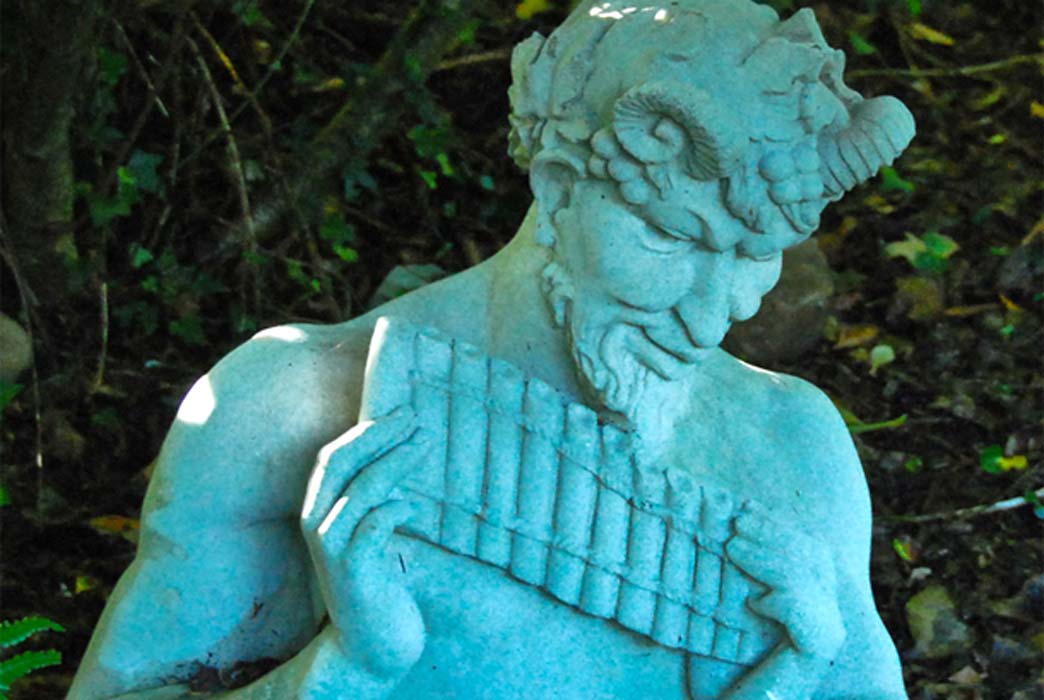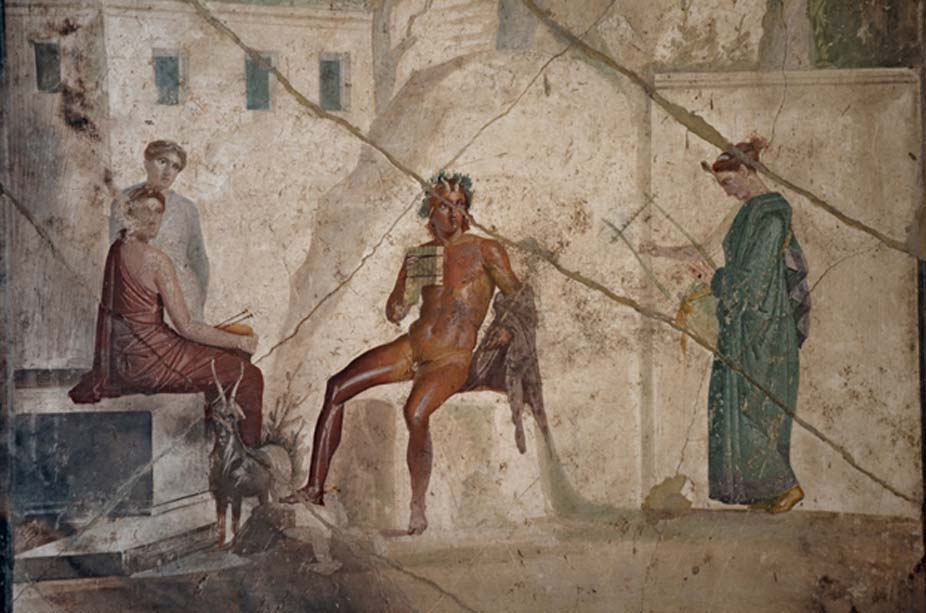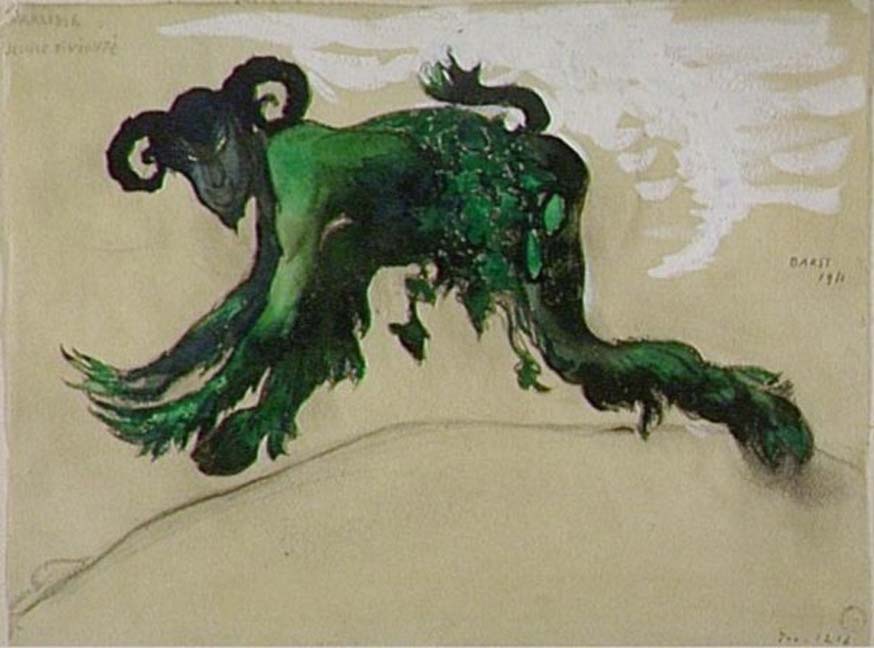
The Failed Sex God: The Horned God Pan and His Unrequited Lusts
"The bounteous Pan, the god of rural scenery, shepherdi, and huntsmen," as the poet Milton calls him, is the Greek god of woods and fields. Originally a pastoral god from Arcadia and depicted as a wild deity with the horns and hooves of a goat, Pan was believed to dwell in the mountains and forests of ancient Greece.
Pan’s image has undergone a wide range of representation. His early representations on Greek pottery from around 500 BCE depicted him as a goat, standing upright on his hind legs. In later arts, he acquires a human upper body and head, although still retains his goat horns, and is often in the company of Maenads and Satyrs.

Third Style fresco depicting Pan playing the flute accompanied by a nymph playing the lyre, from the House of Jason in Pompeii, Naples National Archaeological Museum (CC BY-SA 4.0)
A Paradoxical God
The god’s popularity increased in the fourth century BCE when he appeared on the reverse side of coins minted for the Arcadian League and he became associated with the panic which could spread among soldiers in the heat of battle. In Roman times, Pan came to be regarded as the representative of paganism and the personification of all nature.

Pan was a personification of nature (Public Domain)
By approximately 300 CE Pan was demonized; this continued until the western world largely associated images of Pan with the devil. After the Council of Nicea issued the Nicene Creed and the Roman Catholic Church was established in 325 CE, Christian theologians - beginning with Eusebius - transformed Pan from a benign nature god to a personification of Satan.
Pan’s nature rather lends itself to this evolution as his nature was always one of paradox: an uncivilized god in a civilized world. Pan’s first role has always been that of the shepherd, the guardian between civilization and the wild. Much like the goat, which could never truly be domesticated, Pan has always retained a bit of his feral nature. He was among the most popular of the ancient Greek gods, yet his cult never had the far-reaching impact enjoyed by the cults of Dionysus, Athena, and Apollo. Pan is also famous for his unfettered sexuality, yet was rarely successful in his courting.
Pan and Sexuality: The Price and Virtue of Wanton Lust
It is almost impossible to separate Pan and sex. He is a lusty god and the patron of sex for the sake of lust and physical satisfaction. True to his contrary nature, Pan’s myths are full of conquests and dalliances but are void of long-time partners. Although Pan represents instant gratification and living in the moment, to the ancient Greeks he also represented the price of such abandon, which is often heartbreak, regret, and loneliness.




